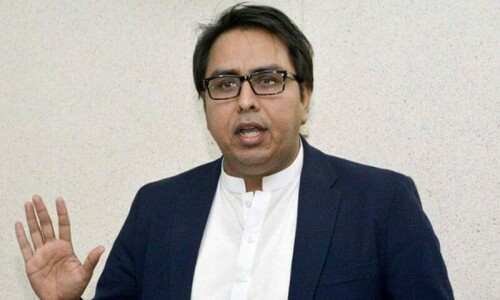LAHORE: Khyber Pakhtunkhwa and Sindh are set to take up the issue of Liquefied Natural Gas (LNG) import, pricing, allocation and distribution with the federal government on Wednesday as they are of the view that the Council of Common Interests (CCI) is the forum to deal with such issues and not the three central committees.
The provinces will separately raise their concerns at a high-level meeting scheduled to be held in Islamabad. The top authorities of ministry of petroleum and natural resources, provincial energy departments, law ministers, advocate generals and others concerned will attend the meeting. The meeting will be presided over by the attorney general of Pakistan.
Officials say Sindh has also expressed its concerns over swapping (exchange) of LNG after re-gasification and the indigenous gas at various fields by the federal government without any agreement or memorandum of understanding.
“The Sindh government has a concern over this matter, as it is of the view that how the indigenous gas can be supplied to Punjab, allocating RLNG for Sindh after swapping without any agreement between the two governments,” says a senior official requesting anonymity.
According to a working paper to be presented by the KP government in the meeting, the Economic Coordination Committee (ECC), Cabinet Committee on Energy (CCOE) and Executive Committee of the National Economic Council (ECNEC) are not the competent forums to decide matters falling under part-II of the federal legislative list.
“Article 154 of the Constitution authorises CCI to formulate and regulate policies in relation to matters in Part-II of the federal list. The federal government is complicating the matter by putting LNG at Entry 27, Part-I of the list. It can only impose customs duties on LNG. And the matters related to pricing, distribution, utilisation, regulation etc shall be dealt by the CCI,” reads the KP’s working paper.
The paper mentions that according to article 158, the province in which a well head of natural gas is situated, shall have precedence over other parts of Pakistan in meeting the requirement from the well head. Therefore, the provincial government should have full authority on allocation and distribution of natural gas.
It says the 18th amendment provided provinces with legislative, executive, institutional, policy making and planning spaces, to create a system of context-specific governance for expeditious oil and gas exploration and production causing enhanced energy security, lowering petroleum product prices, fast economic upturn, millions of direct and indirect jobs and better service delivery.
The paper states that after the 18th Amendment, the provincial governments can identify, solicit bids, and award and terminate exploration blocks and development & production blocks, and mining areas within its territory. They have powers to develop their own laws, policies, rules and regulations and sign petroleum related agreements.
“Let’s see what we do in Wednesday’s meeting, as we are ready to argue our case with the federal government for the sake of ‘right’,” a KP government official told Dawn.
Published in Dawn, February 15th, 2017













































Dear visitor, the comments section is undergoing an overhaul and will return soon.